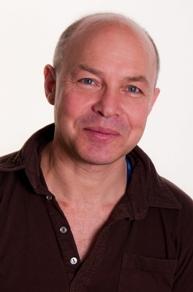5 minutes with... A musculoskeletal GPSI
As part of the Portfolio GP series “5 minutes with…” Dr Cantlay interviews Dr Foell, a musculoskeletal and rehabilitation medicine specialist.
Job role:
Dr Foell attended medical school in Germany and went on to complete post-graduate training in rehabilitation medicine. His focus was manual medicine, using a combination of trigger point techniques, manipulations and soft tissue work.
He began vocational GP training in 1999 and now works as a salaried GP in a busy London practice. His passion for musculoskeletal medicine and chronic pain saw him become the GPSI for Hammersmith and Fulham.
He is also a medical acupuncture practitioner and a member of the British Medical Acupuncture Society. In addition to his musculoskeletal work, he is passionate about education, teaching undergraduates at Imperial College.
His work prioritises holistic, hands on care and the interface between physical and psychological health.
How did you become interested in musculoskeletal medicine?
It started way back to when I was a teenager and I was doing a lot of sport - mainly volleyball and basketball and I was getting a lot of overuse injuries as I wasn’t listening to my body. I had some poor experiences with orthopaedics and I became interested in studying more about the field.
Before I went to university I worked as a care assistant in a naturopathic institution integrating manual medicine, acupuncture, psychological therapies and exercise in a multimodal manner. Since then I have always been interested in manual and physical therapy.
Did you do any extra training?
Whilst I was studying medicine at university I did additional courses in sports medicine and sports massage. It wasn’t a speciality as such back then.
After university I did post-graduate training in manual medicine, where I learnt about injection therapies, dry needling, manipulation, osteopathy and soft tissue techniques. After working in rehabilitation medicine, I retrained to become a GP in 1999.
During my vocational training, I spent time in ENT, A+E and psychiatry and would find a place for manual medicine in each of these. There was no policy on acupuncture or soft tissue injection injection in A+E, and I had successfully treated some colleagues I was able to use these techniques on patients.
That was a lot more satisfying then telling them to wait for a physiotherapy referral in 6 weeks time.
I didn’t need any specific training to become a GPSI. The musculoskeletal field is a bit like the Wild West - with lots of tribes and no one established career structure. These “tribes” include professions like Physiotherapists, Chiropractors, Osteopaths and with each bringing a slightly different understanding to soft tissue and muscle dysfunction.
Do you need to be practically minded?
Not really. It’s a bit like cooking, some people are naturally gifted to prepare a meal with what they find in the cupboard and some need to follow recipes. I do like to think of it as a craft. The more you do, the more you can refine your haptic skills.
What’s your working week like?
When I worked as a GPSI, I would do two sessions a week. This would include clinical work and MDT meetings. I then worked the rest of the week as a salaried GP and as a teaching fellow for medical students at Imperial.
What is the best aspect of your role?
On the practical side I love it. There is immediate satisfaction from working with your hand and getting results. Its not you and the computer. In using my hands, I get closer to people and I can get a better feel for things.
I think it is very important to get to know your patients by examining them. You tell a huge lot about the state of conflict they are in. Someone who is tense may show hypervigilance in his tissues, startling at the lightest touch. In someone that is depressed the tissues may feel empty and saggy. You get to bond with someone and explore why it hurts.
I also really enjoyed working with some many different specialities in the MDT and being an interface between primary and secondary care.
What was the downside of the job?
Dealing with chronic pain can be challenging. You can get very tied up in dealing with it. The key is continuity of care, which is difficult in a GPSI environment. The GP is best placed for this.
There is a huge unmet need with chronic pain in the NHS and psychology and psychiatry are hugely under represented in its management. Welfare, social suffering and poverty - all these things cannot be removed with an injection or acupuncture and that can be difficult.
Can this bring in extra income?
Most GPSI work is paid in short term contracts and the work is similar to that of a sessional GP.
What advice do you have GPs interested in musculoskeletal medicine?
We need more of you! There are several post-graduate courses available from Middlesex University and Loughborough university. Contact your local MSK service to find out more about how you can get involved.


